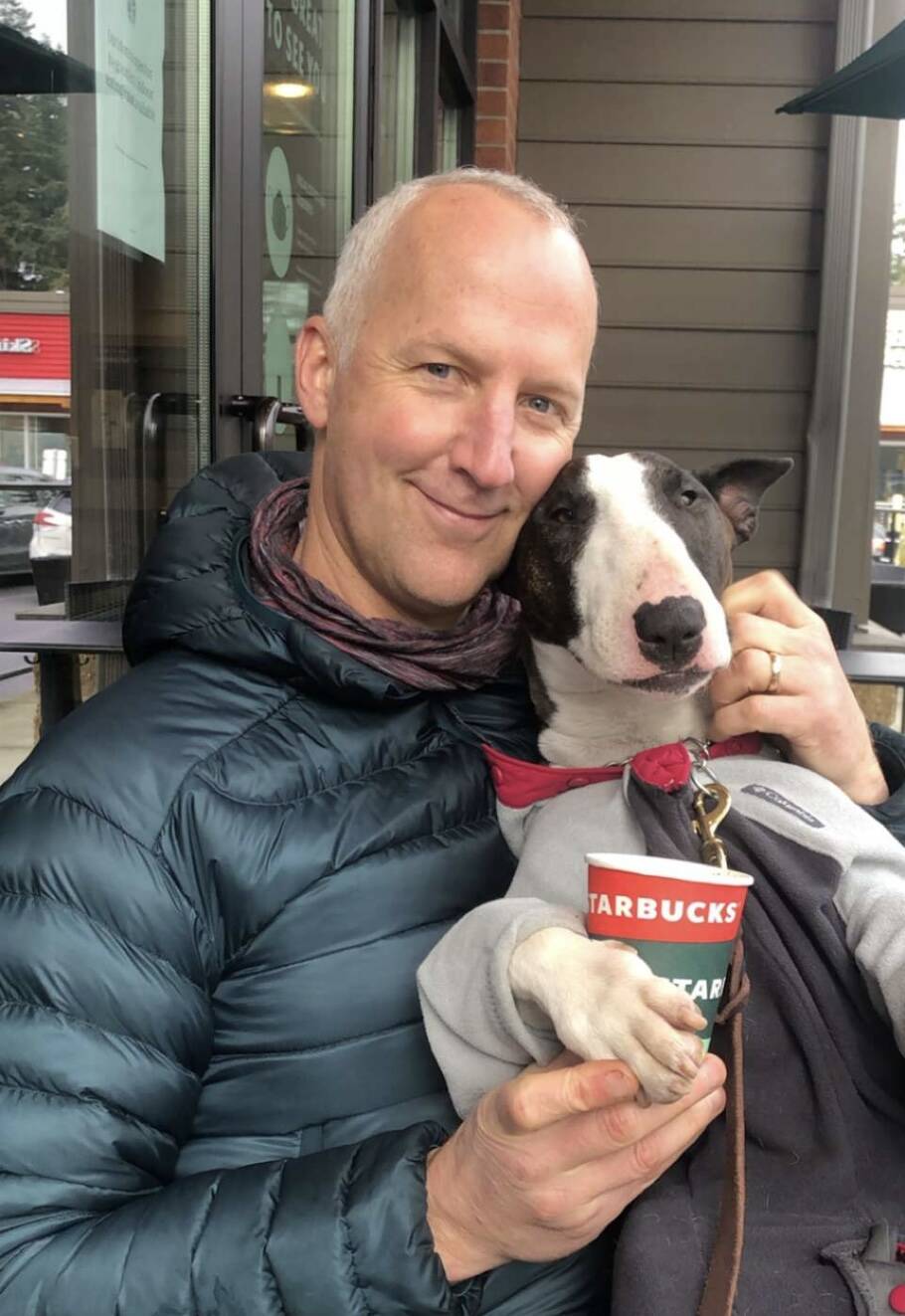Some know him as an esteemed wildlife veterinarian.
To others, he’s the doctor who cared for the thousands of cats and dogs who have passed through the shelter.
After 20 years, Joe Gaydos has retired from his volunteer position as staff vet for the Orcas Animal Protection Society. He has been balancing his work as the chief scientist for the SeaDoc Society, a program of the University of California, Davis, with volunteering at the shelter. His last day was June 6.
“The shelter made it possible. I love what they are doing and I love being able to help out. I would come after work, one day a week, and stay until the job was done. They were flexible with me,” Gaydos said. “I felt like wow, I have been doing this for 20 years. And I would like to have a little more time to myself. I sometimes work 60-70 hours a week at Seadoc and I want to have my evenings to myself. And there seem to be other vets interested in helping out. It’s time to pass the torch.”
Dr. Mike Boero and Dr. Teri Dowdell have stepped up as the new on-call vets for APS. The shelter board says it will continue its mission to “provide the best care possible to our shelter cats and dogs as well as those in our community utilizing our low-cost spay/neuter program.”
“He has been an integral part of the shelter’s success from the beginning,” said Orcas APS director Kristina Snyder.
Gaydos was approached for the role in 2002, the year the facility opened, by protection society co-founder Marsha Waunch. He has performed more than 1,700 spay and neuter surgeries as well as removed tumors, done biopsies and more.
“The incredible impact Dr. Joe had over so many years of dedicated veterinary work at the animal shelter has made a huge difference for Orcas Island,” Waunch said. “With Joe’s skills and support, he helped make the Animal Shelter an amazing facility that set the standard for others to emulate. Not only did he keep all the shelter animals in the best of health, but he also dealt with the ever-expanding feral cat population.”
Gaydos says he spent many years getting the wild, feral cat problem under control by performing spaying and neutering on animals that were trapped and brought in by volunteers and community members.
“There was a turning point that then the shelter could offer low-cost spay and neuter clinics for the public,” he said. “And ecologically, it’s amazing. The birds are thanking us.”
Gaydos says one of the strangest cases he saw on his table was a series of cryptorchid cats, which means one testicle had not descended.
“It is very odd for cats to have this but I had 15 in one year,” he remembers. “They were all coming from a certain part of the island that had a predisposition. They told us in vet school: you may see one if ever, during your career, it’s so rare.”
Gaydos always knew he wanted to work with creatures big and small.
“I was one of those kids who grew up catching snakes and going fishing,” Gaydos said. “I found a poisonous caterpillar at 2 and was so excited I didn’t even notice my hand was swollen. Going through school, I was really interested in disease and health. I was really lucky I was able to go to college and get good enough grades for vet school. I love what I do.”
He went to veterinary school at the University of Pennsylvania and upon graduating immediately took a job in Zimbabwe with the Philadelphia Zoo. After returning to the states, Gaydos ran a mixed animal vet practice in West Virginia for four years before earning a PhD in wildlife population health at the University of Georgia.
“Then my wife said no more school, not even a cooking class!” he laughed.
In 2001, Gaydos moved to Orcas for his position at the SeaDoc Society and to raise a family. His eldest daughter Hannah is now 24 and his youngest Olivia is 21. He and his wife Julie Brunner-Gaydos welcomed adopted daughter Celestine into their lives when she was in high school. She’s now 26.
With a bit more free time, Gaydos intends to reignite his interest in playing the banjo and gardening with his wife. He also loves to travel, particularly to Subsaharan Africa, and diving anywhere he can see fish, sharks and “cool stuff.”
His work at the animal shelter was all volunteer but APS provided a stipend to cover his malpractice insurance and license fees. One of the unexpected benefits for Gaydos was keeping surgery skills fresh for the occasional times he’d perform procedures in the field on wildlife.
Gaydos says he will most miss the humans he’s connected with during his many years at Orcas APS.
“I really enjoy the animals but I love the people: the staff, the volunteers, the members of the public. It’s just a great group of people,” he said. “It feels like being a family doctor. It’s a nice feeling to be a part of the community in that way.”




